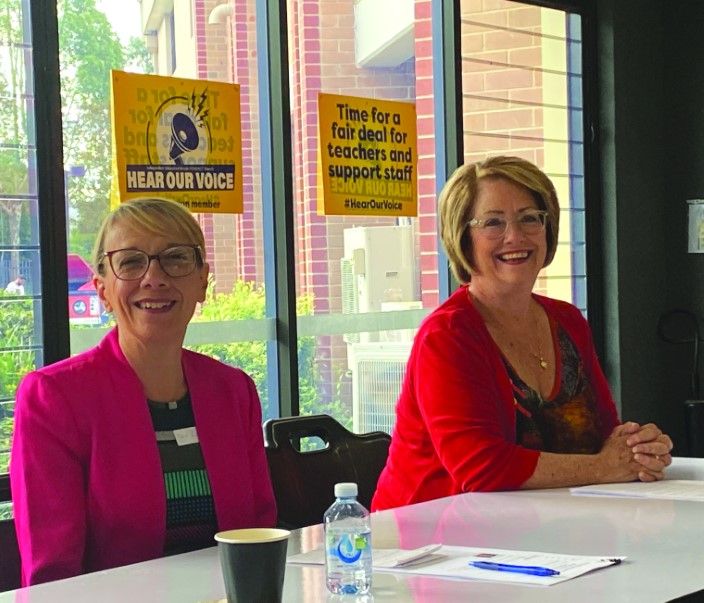
Organised by IEU rep Elizabeth Heggart and held at Penola Catholic College, Emu Plains, on 17 November, participants heard from new IEUA NSW/ACT Branch President Tina Ruello, who is a secondary school teacher; and Penrith City Councillor Karen McKeown, who is running for Labor (Penrith) in the NSW election in March next year.
IEUA NSW/ACT Branch President Tina Ruello
“I’m a teacher first and foremost – that’s the foundation of who I am. I’m in the classroom every day where I teach English. Everything I do and think comes from this perspective of being a teacher. The last few weeks have been difficult and tiring. Assessments, marking, NESA issues, reports due, and I have a preservice teacher doing her first practicum because I’m conscious of the teacher shortage.
“I’ve been a western Sydney woman for a long time. I grew up in Five Dock, and I know life can be hard for women who live west of the Sydney Town Hall.
“Changes for women in the workplace have been phenomenal since I started teaching in the 1980s. But it’s only because of unionism things are better than they used to be.
“When women come together, we are really strong. We share stories, listen, give advice, and have an empathic understanding of what things are like for women.
“We don’t pull the ladder up from another woman who’s doing the best she can. We pull her up, we don’t whisk the ladder away. I’m a helper, I’m a giver, I’m a listener.
“We do not have to accept the status quo, we’re in a position to change things. Let’s go forward and have our battles and win them. Things can be different and they will be different.”
Penrith City Councillor Karen McKeown
“I’m a lifelong unionist. My grandmother always said when you get a job, the first thing you do is join a union – and I’ve always done that.
“Let’s talk about the difference between equality and equity. Equality gives everyone access to the same resources and opportunities. But equity differs from equality in that it accounts for specific disadvantages and obstacles certain groups or individuals may experience on the path to obtaining the same outcome. In some situations, the most equitable path is to give certain people additional support in order to provide fair access to a certain opportunity.”
Monica Crouch Journalist







































































































































